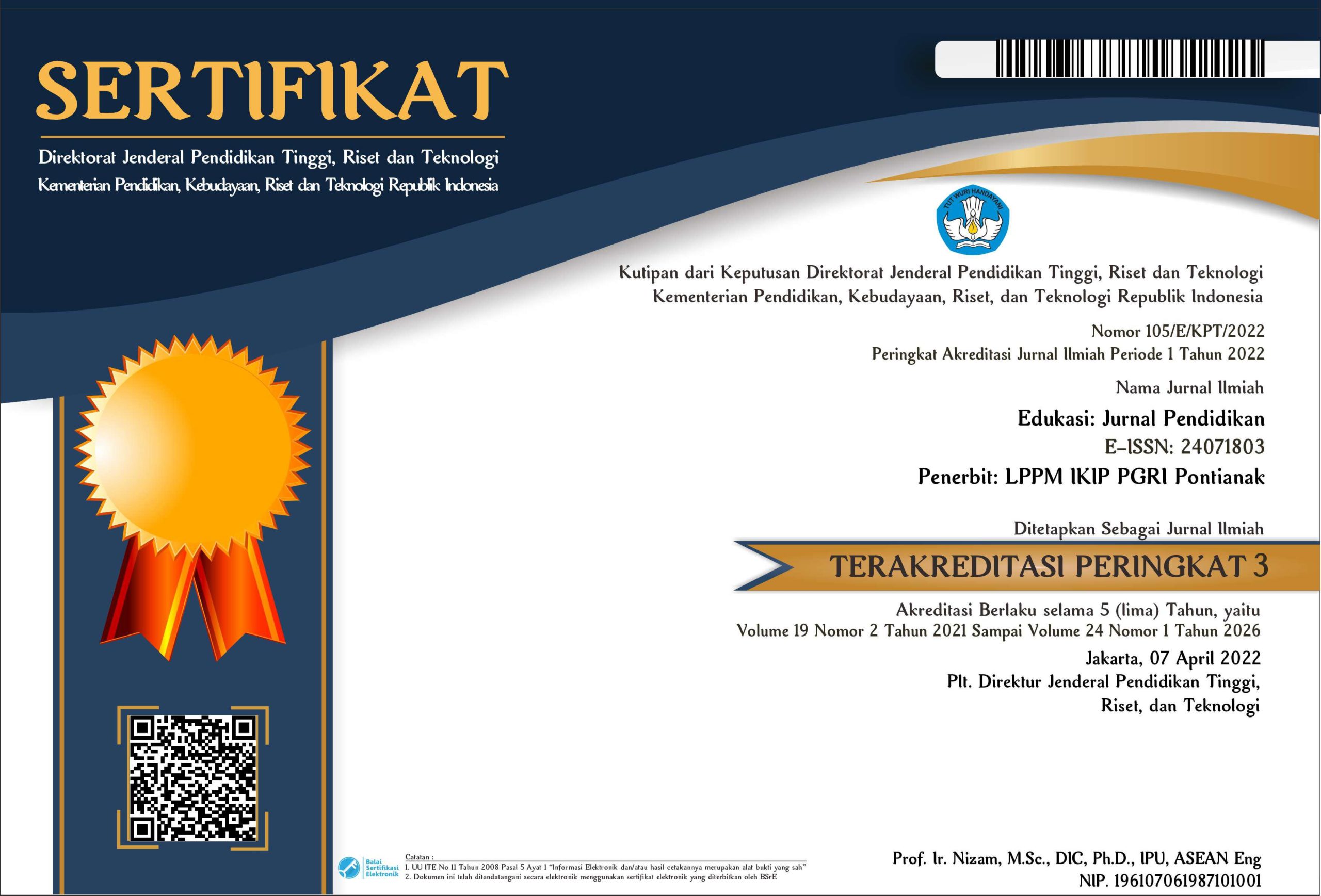Developing Business English and Management Students' Reading Comprehension by Using Context Clues
DOI:
https://doi.org/10.31571/edukasi.v15i2.627Keywords:
reading comprehension, context clues, classroom action researchAbstract
This study was purposed to develop the students’ reading comprehension of D class students of second semester ofEnglish Department of Business English and Management Concentration,Polytechnic of TonggakEquatorin academic year 2016-2017. This classroom action research was conducted in two cycles. Field note and test were employed to collect the data. The test consisted of pre-test and progress test. The data of the students’ pre-test and progress test score were analyzed to get mean score and the data of observation was analyzed descriptively. Based on the analysis, it was found that the students’ reading comprehension developed from pre-test to progress test from cycle to cycle. The mean score of the students’ pre-test was 44.1 and then that of the students’ progress test in the first and the second cycle were 48,9 and 77,2 respectively. Finally, it can be concluded that the action hypothesis was proved in that context clues developed the students’ reading comprehension of D class second semester students of English Department of Business English and Management Concentration, Polytechnic of Tonggak Equator Pontianak in academic year 2016-2017.
Â
Downloads
Downloads
Published
How to Cite
Issue
Section
License
Authors who publish in this journal agree to the following terms:
- Authors retain copyright and grant the journal the right of first publication with the work simultaneously licensed under a Creative Commons Attribution License (CC-BY-NC) that allows others to share the work with an acknowledgment of the work's authorship and initial publication in this journal.
- Authors are able to enter into separate, additional contractual arrangements for the non-exclusive distribution of the journal's published version of the work (e.g., post it to an institutional repository or publish it in a book), with an acknowledgment of its initial publication in this journal.
- Authors are permitted and encouraged to post their work online (e.g., in institutional repositories or on their website) prior to and during the submission process, as it can lead to productive exchanges, as well as earlier and greater citation of published work.

 Download: 190
Download: 190


















